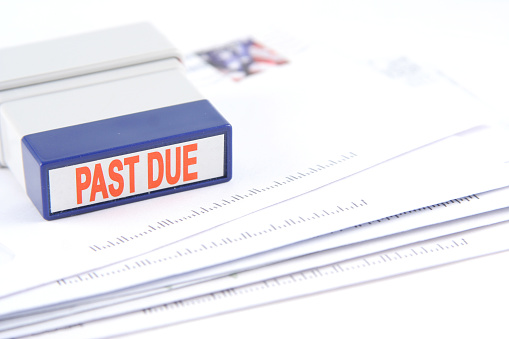Debt Recovery: How to Deal with Non-Paying Clients

Debt recovery is a process of pursuing payment from debtors by either individuals, companies or a collection agency. Most business owners experience this hassle, especially during an economic crisis, where there is financial instability. You’ll agree that the pursuit can be very challenging, especially if you encounter an uncooperative and aggressive client. Are you looking for some tips to help you deal with such clients? This article will outline practical approaches to help you deal with non-paying clients.
Research More about Your Client
Before lending your customers goods or services, you must’ve considered a few details about them to be convinced that they are capable of paying. While this information can be true of some clients, others would give whatever details you inquire from them to get good on credit, even if it means they’ll have to use tricks.
Therefore, countercheck the client’s file to examine whether the information provided is true when the payment is delayed beyond the agreed credit period.

If they left behind alternative contacts of their trustees/partners, contact the third-party contacts if the debtor doesn’t seem to cooperate.
Read: Why Renting a Company is Trending in 2022
Design a Contract
Every business must have a contract signed by both the employer and the employee. In this case, you need to provide a platform where the debtor reads the guidelines and agrees to the terms and conditions before receiving goods/ services on credit. This is beneficial in the following ways:
- It will help with the legal processions in case the debtor is adamant.
- It provides proof to remind them of the debt, whether in text or phone call
- The agreement could be used for future reference if there was a delay.
A contract should have the following features:
- Payment schedule
- Terms
- Preferred payment method (bank account details)
- Scope
- Deadline
- Late payment policy ( inclusive of penalties)
Prepare a file in writing to help with references in the future. This will help to avoid other issues along the way. This involves the knowledge that if they default, they’ll be aware of possible penalties, but before this even happens, they’ll think twice before flaking.
Request for A Deposit
It’s most likely that the client has been held up and cannot pay the full amount all at once. In such instances, organize a payment plan with them by suggesting partial payments if it suits them well. Depending on the circumstances, you can start from as low as a quarter of the full amount.
Regarding a delayed debt, only negotiation with the client could get you to obtain the payment method or plan. You might get hit if you ask for a small portion of the payment. When you become reluctant to negotiate with your client, you may lose the whole amount. Be friendly with your approach and understand their reasons for the delay or why they are reluctant to pay. Only then could you conclude on the right approach.
Read: How to Open and Access an Offshore Bank Account
Confront the Client
If you have tried all these alternative options, but the client still seems adamant about repaying, you may now look for opportunities to confront them professionally.
You can look for avenues to do so.

Talk To and Hire a Debt Recovery Company
Get yourself a reputable debt collection company that approaches its clients with respect. A modest organization will mostly capitalize on your client’s willingness to pay while preserving your good name, your debtor’s integrity, and the health of your organization to help you grow. How you treat your debtors will determine your growth because you’ll most probably get referrals from previous debtors, growing your business. Do you know how to determine the best and most trusted debt collection company? Take note of the following tips:
Read: How to Manage and Solve Commercial Disputes
- They consistently maintain the highest standards of business conduct using ethical and legal approaches during the debt recovery process. While you are obliged to collect back your money, doing it legally is the proper way whether the debtor promises to complete the payment or not. You cannot confiscate their property unless the agreement says so or you have a warranty to do it.
- They actively promote and encourage the highest level of integrity within the industry while discouraging any activity that could compromise this integrity.
- They cooperate with other team members to help with a smooth recovery. While doing a previsit, you’ll notice how they treat clients, whether respectfully or not. You will most likely trust them with your debtors when they maintain professionality.
- They keep their main concern at heart, focusing on credit and debt collection. This will help maintain your company’s dignity.
- They have developed the highest standards and practices for processing and handling their customers using the group’s code of operations and code of compliance using the guidance documents.
- They observe the client’s information strictly and observe privacy. Privacy is crucial, especially with client information, including their credit card information or even details that could land them in trouble once shared.
If they promise to uphold these ethics, you can sign a contract with them to examine if they’ll suit your needs best.
Take Away
Debt recovery might seem easy, but it becomes even hard when dealing with non-paying clients. It’s easy for the owner to become angry and respond in rage. However, this article has listed practical approaches to help you deal with such clients while maintaining your company’s dignity, self-respect, and your client’s respect and growing your business. Depending on the circumstances, use these tips to help you handle your debtors well in a way that could incite them to continue doing business or even refer their acquaintances.
Related Articles: How to Safely Buy a Company Online
Step by Step Guide to Start Accepting Cryptocurrency Payment on Your Website
How to Easily Get a Free Company in Germany




